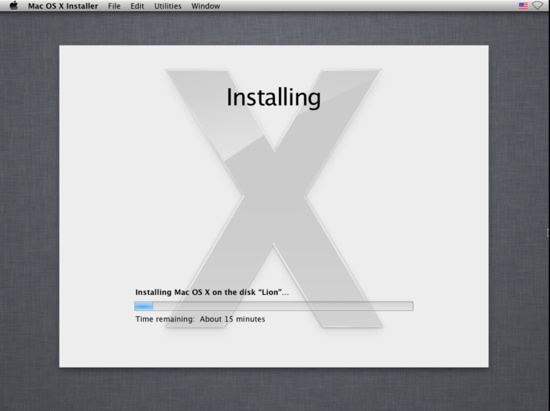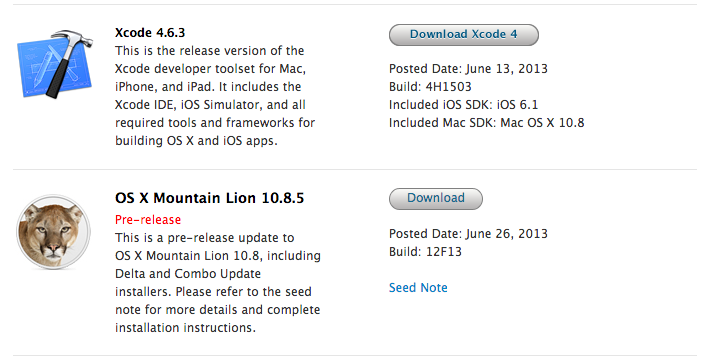
- #Xcode for mac osx lion mac os x
- #Xcode for mac osx lion install
- #Xcode for mac osx lion update
- #Xcode for mac osx lion windows
Fortunately, supporting this is pretty easy. If your app saves data to user-visible documents, users will expect it to support autosaving and versioning very soon. Automatic Document Saving and VersioningĪnother major user-level feature of Lion is that users should not need to be concerned about losing unsaved changes or overwritten data anymore.
#Xcode for mac osx lion update
Update August 29, 2011: To dynamically enable or disable automatic termination depending on the state of your app, use the methods enableAutomaticTermination: and disableAutomaticTermination: of the NSProcessInfo class.

#Xcode for mac osx lion mac os x
See the User Interface Preservation topic in the Mac OS X Application Programming Guide for a step by step guide. The restoration class is then responsible for instantiating the window and its associated objects (such as the window controller). To restore your application’s state when it is relaunched, every window must specify a so-called restoration class through the +restoreWindowWithIdentifier:state:completionHandler: class method (defined in the NSWindowRestoration protocol).
#Xcode for mac osx lion windows
Cocoa will then take care of saving the state (size, position, etc.) of your windows and their associated window controllers, giving you the option to write out additional state information of custom objects associated with the windows. To support this feature in your app you must determine for each window whether its state should be preserved using the -setRestorable: method. When a user logs out, Lion offers them the option to restore all open apps to their current state when logging back in. What follows is a look at the major new developer features in Lion, more or less corresponding to the What’s New in Mac OS X v10.7 Lion document. Part 3: Changes in Core Data, Core Foundation, Core Location, Foundation, QTKit, Quartz and Quartz Core. Part 2: New frameworks: AV Foundation, Store Kit (in-app purchasing) and IMServicePlugIn. Part 1: Major new features: Application persistence, automatic document saving, versioning, file coordination, Cocoa autolayout, full-screen apps, popover windows, sandboxing, push notifications. Check out parts two and three after reading this post: And that is so much that I am going to split the news into three posts. I think.Now that the final version of OS X Lion has reached the Mac App Store, let’s have a look at what is new for developers. The problem I am having is that rootcint is picking up LinkDef files recursively. I have seen discussions of errors similar to this and the solution was removing -I/usr/include from the rootcint command, that doesnt help and is irrelevant here. And STILL occurs if I use ROOT v5.32.00 which previously ran fine.

This did not occur yesterday before upgrading ROOT and Xcode.

But rootcint appears to be trying to deal with the LinkDef file in the include directories.

Now to my understanding the included directories should contain header files, if the compiler needs them, it knows where to look, if it does not need a header file in one of the include directories, it ignores it. Warning: Error occurred during dictionary source generation Warning: Error occurred during reading source files So now I get errors which say things likeĮrror: link requested for unknown class $/LinkDef.hh:32: The specific include directories include headers that I need, but also may contain their own LinkDef.hh file. $ clang++ -vĪpple clang version 4.1 (tags/Apple/clang-421.11.66) (based on LLVM 3.1svn) The solution suggested was to update XCode and clang++ and reinstall.
#Xcode for mac osx lion install
I was attempting to install ROOT v5.34.2 and was having the problem located here:


 0 kommentar(er)
0 kommentar(er)
